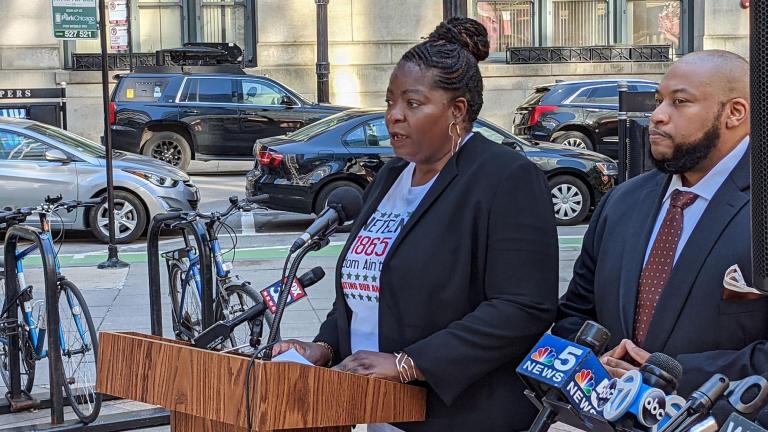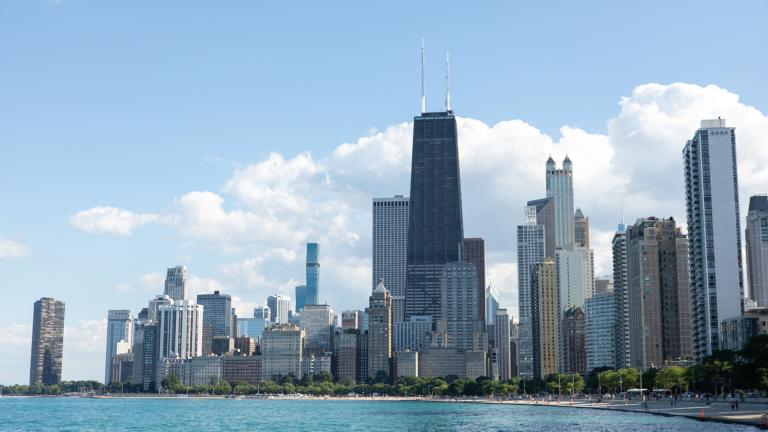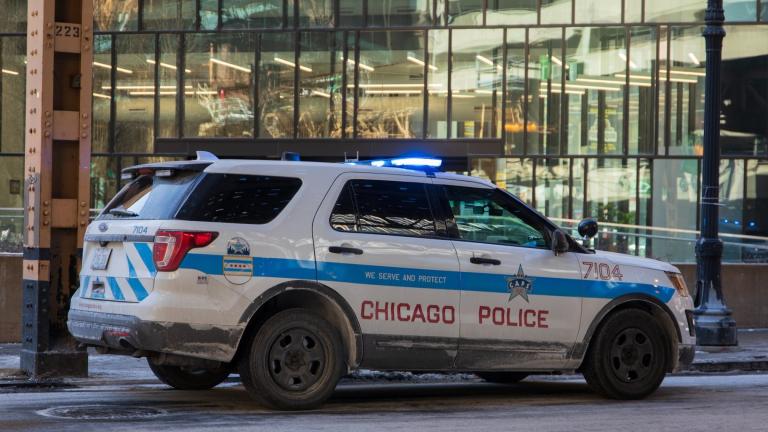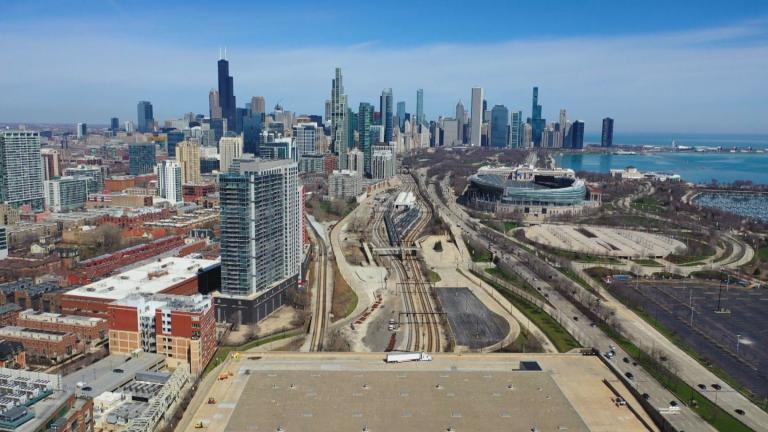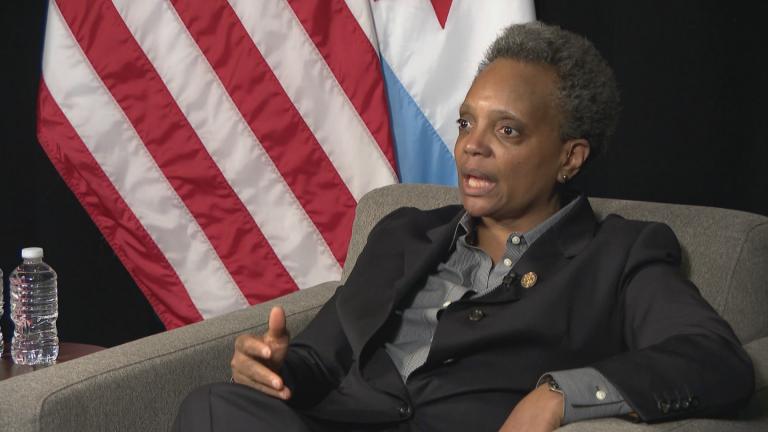Mayor Lori Lightfoot’s picks for key city posts during her first two years in office failed to keep pace with the growing number of Latino Chicagoans, according to an analysis by WTTW News.
The first Black woman and gay person to serve as Chicago’s mayor, Lightfoot has repeatedly called equity and inclusion the twin “north stars” of her administration and earlier this year declared racism a public health crisis and vowed to dismantle the systems that create and uphold racial disparities.
But advocates for Latino Chicagoans told WTTW News that Lightfoot’s appointments to lead city departments and to serve on city panels that have decision-making power have not reflected that commitment — and left their communities struggling to be heard during the worst of the ongoing COVID-19 pandemic.
“I do believe the mayor is dedicated to equity,” said Sylvia Puente, executive director of the Latino Policy Forum, a Chicago advocacy group. “But those good intentions don’t translate to actions.”
Lightfoot’s appointments have also failed to keep pace with the growth of Asians in Chicago, according to WTTW News’ analysis.
Of the 90 appointments sent by Lightfoot to the Chicago City Council for confirmation, 60% of those selected were women, according to WTTW News’ analysis. Lightfoot is the second woman to serve as Chicago’s mayor.
The people of Chicago are 31.4% white, 29.9% Latino, 28.7% Black and 6.9% Asian, according to the 2020 U.S. census.
But approximately 37% of Lightfoot’s appointments between May 2019 and July 2021 were white. Another 29% were Black, while 25% were Latino and 5.5% were Asian, according to WTTW News’ analysis.
That analysis does not include appointments Lightfoot made to a variety of advisory councils designed to make recommendations to her administration that require City Council confirmation. However, those boards and commissions have no policymaking authority and serve a largely ceremonial role.
Cesar Rodriguez, the mayor’s press secretary, said in a statement that Lightfoot “is proud to have built a diverse and equitable leadership team.”
“The mayor has worked to unwind the decades of nepotism and clout that have dictated who gets a seat at the tables that govern our city — and there is still more work to do,” Rodriguez said. “In addition to the appointment opportunities on boards and commissions that go before council, the mayor also sees her office, advisory boards, and committees as critical avenues to elevate diverse voices, and as a pipeline to build stronger civic networks that create transformative leadership.”
The city’s approximately 31,000 employees are also less diverse than the city’s overall population, according to data compiled by the city’s Office of Equity and Racial Justice, created by Lightfoot in 2019. That workforce is 43.6% white, 29% Black, 22.9% Latino and 3.2% Asian, according to city data.
Chicago's Black population dropped approximately 10% between 2010 and 2020.
WTTW News’ analysis does not include department heads appointed by former Mayor Rahm Emanuel and kept in those positions by Lightfoot. That includes Chief Financial Officer Jennie Huang Bennett, an Asian American woman, and former Business Affairs and Consumer Protection Commissioner Rosa Escareño.
Escareño, the city’s most high-profile Latina city official, stepped down at the end of July after 30 years with the city. She helped Lightfoot guide the city through the first 18 months of the COVID-19 pandemic, working closely with businesses that were forced to close their doors and reduce capacity to stop the spread of the virus.
Lightfoot has yet to name a replacement for Escareño.
The City Council confirmed Lightfoot’s appointment of Celia Meza, the city’s first Latina corporation counsel, in June. She replaced Mark Flessner, a white man, after Lightfoot terminated him following a botched police raid.
Along with Huang Bennett, the city’s three top finance officials in Lightfoot’s administration are Asian American women.
The analysis did not include Lightfoot’s decision to tap Jose Torres, who is Latino, to lead the Chicago Public Schools on an interim basis after the departure of Janice Jackson, a Black woman.
That appointment did not require City Council confirmation. All members of the appointed board overseeing Chicago Public Schools are people of color who did not have to be confirmed by the City Council.
In addition, the City Colleges of Chicago is led by Juan Salgado, who is Latino, and the Public Building Commission is led by Carina Sanchez, who is Latina. Both were appointed by Emanuel.
Lightfoot has four deputy mayors, including Manuel Perez, who oversees intergovernmental affairs and is Latino, and Samir Mayekar, who handles economic development and is Asian American. Those positions do not require City Council confirmation.
Ald. Gilbert Villegas (36th Ward), the chair of the City Council’s Latino Caucus, said he was particularly concerned that only two of Chicago’s departments are led by Latinos. Commissioners have wide authority to hire city employees and direct city resources.
“All of this talk of diversity and equity is not working for my community,” Villegas said. “We are not at the table.”
Villegas said he routinely pressed the mayor to appoint more Latino leaders to key city positions while he served as Lightfoot’s City Council floor leader and before stepping down from that post in February.
“There is a real lack of relationships within the Latino community,” Villegas said.
Latino politicians in Chicago have been preparing to ensure that Latinos in Chicago — who saw their share of Chicago’s population rise 5% from 2010 to 2020 — have the political power that reflects their status as the city’s largest racial group, Villegas said.
“We need our fair share of representation,” Villegas said.
The Illinois Latino Agenda 2.0, coordinated by the Latino Policy Forum, is “in dialogue” with Lightfoot’s administration about the need for more Latino leaders at City Hall, Puente said.
The coalition of nonprofit and advocacy groups wants Lightfoot to commit to interviewing at least one Latino candidate for every high-profile position, Puente said.
“Government should reflect the people it serves,” said Puente, adding that otherwise, bias — unconscious and conscious — can slip into decisions and divert resources from where they are most needed.
That is exactly what happened at the start of the COVID-19 pandemic, when tests were more easily accessible in white, wealthy neighborhoods, and when the pace of vaccinations in white neighborhoods vastly outpaced the supply of the lifesaving shots in Black and Latino communities, Puente said.
“Chicago is one of the most segregated cities in the nation,” Puente said. “Too often resource allocations follow those patterns.”
Puente said it was “incredibly frustrating” to be talking about the lack of Latino representation in Chicago’s government in 2021, during a reckoning about the impact of systemic racism sparked by the police murder of George Floyd.
Grace Pai, the executive director of the Chicago chapter of Asian Americans Advancing Justice, said representation “tends to go a long way” toward ensuring helping Chicagoans who might have trouble accessing city services because of language barriers or other issues.
But that won’t ensure that officials take actions that benefit Asian Chicagoans, Pai said.
“Representation alone won’t solve this issue,” Pai said.
Former Ald. Ameya Pawar (47th Ward) — the first, and so far only, Asian American member of the Chicago City Council — said he saw the 31% increase in Chicago’s Asian American community as “an opportunity” to establish a true coalition between Asian, Black and Latino Chicagoans.
“It is not an either or,” Pawar said. “We shouldn’t be fighting over scraps.”
Contact Heather Cherone: @HeatherCherone | (773) 569-1863 | [email protected]
Note: This story was originally published Aug. 20, 2021. It has been updated to include our “Chicago Tonight: Latino Voices” conversation.

